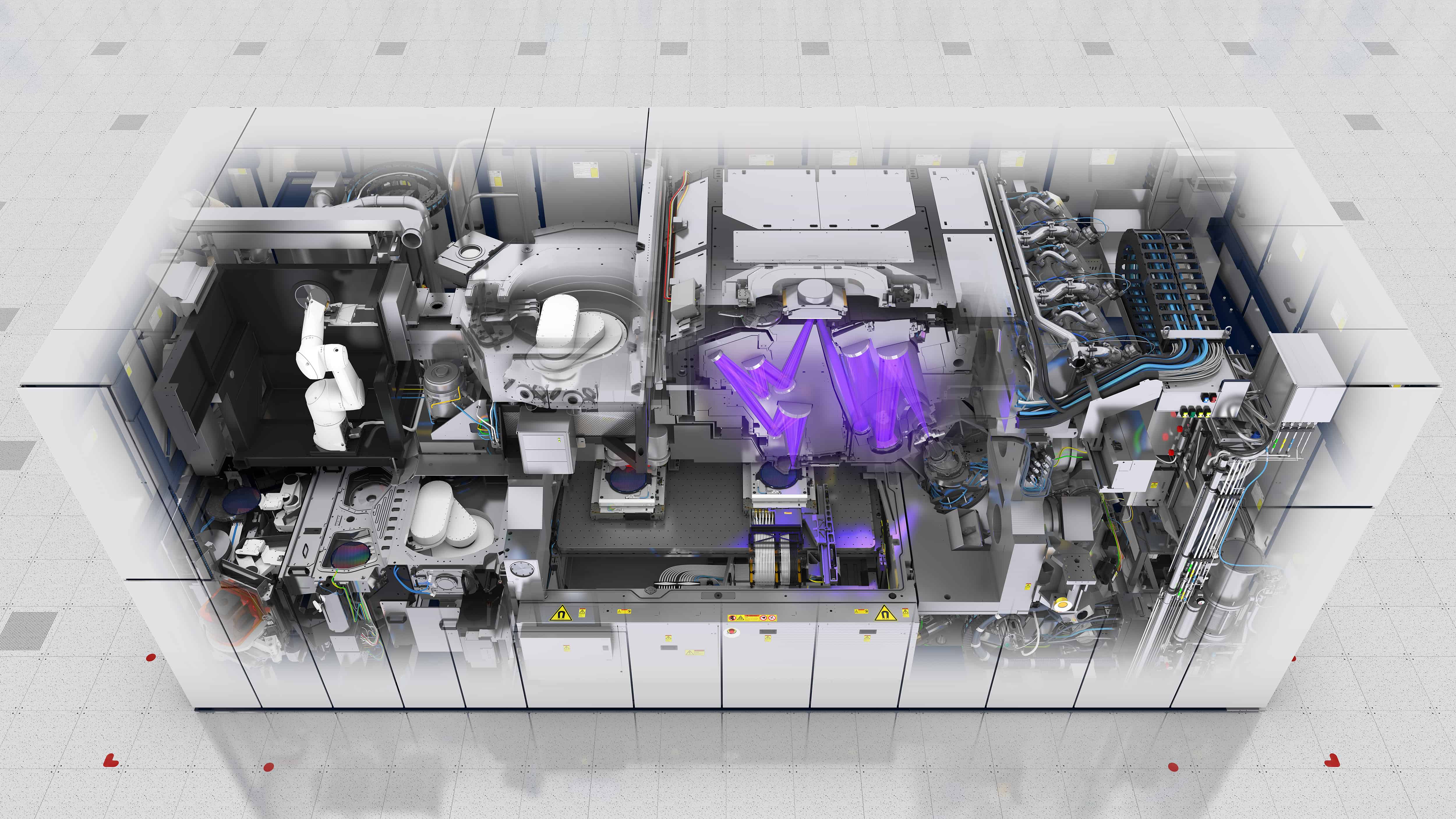
ASML sees sales rise by nearly a third to 28 billion euros, despite chip surpluses and export restrictions to China. The Veldhoven-based company today presented its 2023 annual results. The company’s net profit was nearly 8 billion euros.
And that while the global demand for computer chips has been going through a rough patch for about a year and a half now. They notice that in Veldhoven, ASML has found its way up, according to CEO Peter Wennink. “Although our customers are not yet sure about the shape of the semiconductor market recovery this year, there are positive signs. Inventory levels in the end market continue to improve, and litho tool utilization rates are improving. Our strong order intake in the fourth quarter supports future demand.”
Cautious optimism
Despite 9.2 billion in orders flowing into ASML in the last quarter of 2023 – a record – the top executives are cautious. Chinese manufacturers were ASML’s primary source of revenue in the third and fourth quarters. The company stresses that these machines were already ordered in 2022 and are not subject to export restrictions.
Consequently, it does not change the 2024 outlook. CFO Roger Dassen: “It is still too early for that. We are investing a lot this year in building our production capacity. We believe that 2025 will be a strong year with much growth. We are preparing for that this year.”
An eventful year
2023 was an eventful year for ASML. Additional measures were added to the export restrictions since 2020 for the most advanced machines, the EUV (extreme ultraviolet). Under pressure from the US, the Dutch cabinet decided that ASML could no longer export certain types of DUV (deep ultraviolet) machines to China.
As the new year began, it came to light that the US had intervened in the so-called “cooling off period” granted to ASML. Although ASML thought that ongoing orders could still be shipped to China during that period, it turned out that previously issued licenses had been revoked by the administration, affecting a “small number of customers” in China, according to ASML.








